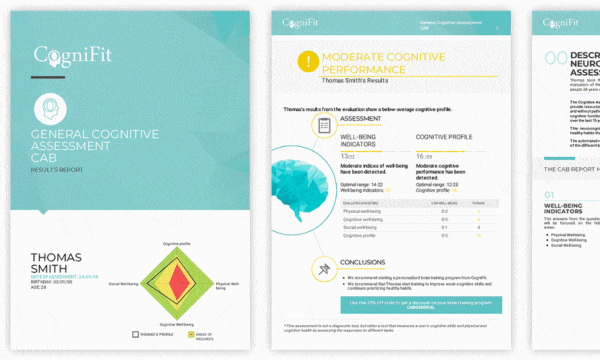
Empathy: Can you put yourself in someone else’s shoes?
You’ve probably talked or heard about it, but do you really know the implications of empathy and its meaning? Empathy is much more than putting yourself in the other person’s shoes. Find out everything you need to know about empathy: What is empathy, definition, and concept, characteristics of empathetic people, types of empathy, differences between empathy and assertiveness, its benefits, how to improve or practice it and much more. If you want to share your experience or ask us any questions please leave your comment below.

What is empathy? Definition and Concept
The term “empathy” comes from the Greek ἐμπάθεια: empátheia. Dictionaries define it as a feeling of identification with something or someone. The Oxford dictionary defines it as the ability to understand and share the feelings of another.
The first description of empathy is the one we usually use and refers to the emotional aspect. The second is the cause of the first since it would be impossible for us to feel if our cognition and thoughts didn’t allow it.
Therefore, we could say that empathy is the ability to put oneself in the other’s place, both emotionally and intellectually. Thus, the verb “empathize” appeals to the action of understanding other’s reality, including cognitively and emotionally.
The art of understanding emotions is more complex than it may seem. A study done by the University of Amsterdam indicates that empathy is bidirectional. This means that empathic interaction is significant for both individuals, for the one that is empathic and the one who feels comprehended. It is easy to see that we are not empathic to the same extent everybody in the same way.

Empathy: Characteristics of empathic people
People who feel empathy share a number of personality traits or behavioral patterns among themselves that foster the development of empathic capacity. Take a look at the following list to know the main characteristics of empathic people:
- They are highly sensitive. Empathetic men and women are good listeners, open-minded to new experiences, kind and selfless. They are usually attentive to the needs of others and do not hesitate to lend a hand. It is not surprising, then, that they have a fascinating ability to transmit good feelings while interacting with others. However, the negative side of being highly sensitive is that people are more susceptible to feeling more empathy, more than they can handle. Therefore, any offense or ugly gesture they may receive hurts them more.
- They capture people’s emotionality. As if it were a sponge, someone empathic is capable of absorbing the emotions of others. The mood of the other person has a significant influence on that of a person with a high level of empathy so that their emotionality is intensely adapted to both negative and positive feelings. Thus, it is difficult for them not to feel overwhelmed if they meet someone who is going through a time of anxiety and stress, or not to catch the joy of a happy person.
- Your kindness can affect your own well-being. Having a big heart and caring sincerely for others are indisputable virtues. The disadvantage of this is that empathic people become more dedicated to other people’s problems than to their own, which often leads to frustration, stress, and difficulties in managing their lives.
- They are careful with their language. Communication is essential to demonstrate empathic skills. When we empathize with others, we review our words twice before we say them because we are aware of the impact language can have on the other person’s well-being, for better or for worse.
- They avoid extremes. People with empathy prefer the middle ground. They avoid extreme thinking. Therefore, when they surround themselves with someone who is extremist, they are able to teach them that not everything is black or white, but that there are many colors from which to perceive things and the most appropriate thing is to be open to that diversity that life offers us.

Types of empathy
There are different types of empathy among which are:
Affective empathy: also called emotional empathy, it consists of three differentiated elements. To begin with, you need to feel the same emotion as the other person. Then, a distressing component appears as a natural reaction to vividly perceiving the feelings of the other. Finally, this leads to compassion.
Cognitive empathy: refers to the intellectual potential to perceive and understand the emotions of others. It could be said that cognitive empathy is the previous step to feeling affective empathy. It is necessary to learn to recognize emotions and then to understand their repercussion on one’s state of mind.
Unconscious empathy: Unconscious empathy implies a high level of involvement. Excessive involvement can lead to confusion caused by emotional contagion. Unconsciously empathetic people become so involved in others’ emotions they end up making them theirs. Consequently, controlling, and managing one’s emotions becomes tremendously complex.
Conscious empathy: This kind of empathy involves less emotional involvement. Conscious empathy allows you to observe the other person from an objective perspective and distance, which is essential to encourage emotional self-regulation and allow for a better understanding of the other person’s needs. A person who consciously empathizes is more effective in helping others because they support others without being overwhelmed with their feelings. This is the healthiest way to empathize because in this way you don’t carry the weight of the emotions that don’t correspond to yours and you can offer your best self.
Intercultural empathy
From empathy, one learns to respect and value the decisions of others, and also to understand the concerns and aspirations of others. And this process occurs in the same way across cultures. To empathize with other cultures means to know and understand the importance that each person gives to their customs, traditions and artistic productions.
To recognize multiculturalism is to accept human diversity because not all people are equal and have not grown up in the same environment. There are many cultures, languages, religions, professions, ways of thinking, skin tones, etc. and they are all equally valid.

It is essential to teach this kind of empathy in school, as children educated in the diversity of ethnic groups will develop a much healthier and more open way of thinking. Moreover, learning to accept the differences and not confront them will avoid numerous social problems in the future.
Empathy and assertiveness
It is important to make the distinction between empathy and assertiveness, given the confusion that both terms can cause.
To begin with, the similarities observed indicate that both empathy and assertiveness are considered to be potentially developable social skills in all human beings, since both can be learned in different contexts intentionally, by chance or due to daily life experiences.
Both skills need respect to be put into practice: respect for others (because the last thing you want is to hurt others’ feelings or hurt them) and respect for yourself (because you are defending the rights of another human being). In addition, other qualities such as honesty, integrity, and consistency are important.
The differences are more noticeable. While assertiveness implies a more personal aspect where there is a concern for not attacking others with words while allowing others to express their thoughts and opinions. Empathy doesn’t restrict or concern itself about feelings or others opinions when it needs to be expressed. Assertiveness defends the words that are pronounced, and empathy understands the words that others pronounce.
In conclusion, when we have the capacity to say what we think without hurting someone else’s feelings, and we also have the capacity to understand others by giving them the opportunity to speak, and express what they think, an enriching dialogue is established. This allows both parties to learn from each other, and communication flows clearly towards the goal that has been established.
These are two very useful skills for learning and communicating that complement each other. Both of these skills need to be learned to develop excellent communication and listening abilities.
Benefits of empathy
Empathy has many benefits. Let’s look at some examples:
1 – Helps emotional harmony:
Empathic people connect quickly with others, making the vast majority feel comfortable and making interpersonal relationships seem easier.
2- Helps to be objective and fair:
The best way to gain the respect of others is to show it to ourselves, even if we may differ in opinions.
3- It improves self-esteem and stimulates our learning:
Feeling that we have a positive effect on others works as a powerful personal enhancer. Furthermore, the empathic exercise allows us to learn from other’s, enriching the prism of reality with different perspectives.
4- It transmits generosity:
Those who demonstrate empathy are collaborative and more successful. It helps them act as brilliant catalysts for change by influencing others to achieve common goals
5- Strengthens professional relationships and maintains them over time:
Working empathically increases the strength of the bonds. This aspect is great in negotiation as well as in those cases in which it is necessary to seal agreements based on trust.
6- It helps show our most peaceful and constructive side:
There is numerous scientific evidence to corroborate that empathy and violence are, neuropsychologically, incompatible with each other. As our understanding increases, our inclination to belligerence decreases and the way we are perceived socially improves.
Keys to practicing empathy
Like all skills, empathy can be trained. Here are some tips for practicing empathy:
- Listen with an open mind and without prejudice. Be respectful of others.
- Pay attention and show interest in what they are telling you because it is not enough to know what the other person feels, but we have to show them you care.
- Do not interrupt while being talked to and avoid becoming experts at giving advice, rather than trying to feel what the other person feels.
- Learn to discover, recognize and reward the qualities and achievements of others. This will not only contribute to building their capacities but will also reveal our concern and interest in them.
- When we have to give our opinion on what we are being told, it is very important to do so constructively, to be honest, and not to hurt anyone.
- Be willing to accept differences with others, be tolerant and patient with those around you and with yourself.












